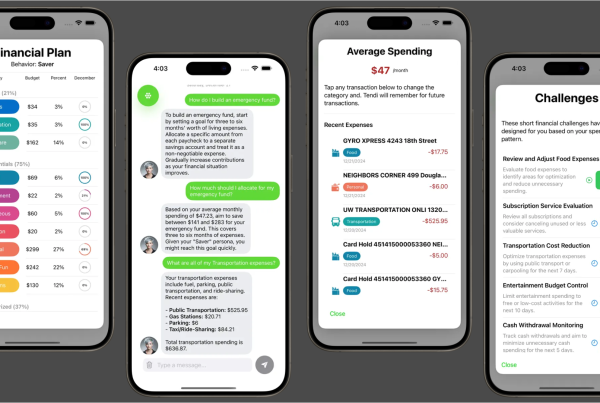The landscape of personal finance is rapidly evolving, driven by advancements in technology, changes in consumer behavior, and the ongoing digital transformation of financial services. As we look ahead, several key trends and innovations are poised to reshape how individuals manage their money, make financial decisions, and plan for the future. Here’s a comprehensive look at what the future of personal finance holds and how you can prepare for it.
1. Digital Banking and Fintech Innovations
Digital banking is becoming the norm, with traditional banks and fintech startups offering a range of online services that make managing money more convenient and accessible. Mobile banking apps, digital wallets, and online-only banks are leading the charge, providing features such as instant transfers, budgeting tools, and investment platforms. These innovations offer users greater control over their finances and the ability to manage their money anytime, anywhere.
2. Artificial Intelligence and Machine Learning
Artificial intelligence (AI) and machine learning (ML) are transforming personal finance by enabling more personalized and efficient financial services. AI-powered chatbots and virtual assistants provide real-time customer support and financial advice, while ML algorithms analyze spending patterns to offer tailored budgeting and saving recommendations. These technologies help users make smarter financial decisions and optimize their financial health.
3. Blockchain and Cryptocurrency
Blockchain technology and cryptocurrencies are set to revolutionize the financial industry by providing secure, transparent, and decentralized financial transactions. Cryptocurrencies like Bitcoin and Ethereum offer new investment opportunities, while blockchain can enhance security and reduce fraud in financial transactions. As these technologies mature, they will likely become more integrated into everyday financial activities, offering new ways to save, invest, and transact.
4. Personalized Financial Planning
The future of personal finance will see a shift towards hyper-personalized financial planning. Financial advisors and robo-advisors will use big data and advanced analytics to create customized financial plans that cater to individual goals, risk tolerance, and life stages. This level of personalization will help users navigate complex financial landscapes and achieve their financial objectives more effectively.
5. Open Banking
Open banking initiatives are enabling greater financial transparency and control for consumers. By allowing third-party developers to access financial data through secure APIs, open banking facilitates the creation of innovative financial services and products. Users can benefit from integrated financial management tools that provide a holistic view of their finances, helping them make more informed decisions.
6. Sustainable and Ethical Investing
Environmental, social, and governance (ESG) factors are increasingly influencing investment decisions. The future of personal finance will see a growing emphasis on sustainable and ethical investing, with more investors seeking to align their portfolios with their values. Financial institutions and platforms will offer more ESG investment options, enabling individuals to invest in ways that support social and environmental goals.
7. Financial Education and Literacy
Improving financial literacy remains a critical goal for the future. Technology will play a key role in delivering accessible and engaging financial education through apps, online courses, and interactive tools. Empowering individuals with the knowledge and skills to manage their finances effectively will help build a more financially resilient society.
8. Enhanced Security and Privacy
As digital financial services expand, ensuring the security and privacy of user data becomes paramount. Advanced encryption, biometric authentication, and blockchain technology will enhance the security of financial transactions and protect against cyber threats. Financial institutions will continue to invest in robust security measures to safeguard user information and build trust.
Preparing for the Future
- Stay Informed Keep up with the latest trends and innovations in personal finance. Follow financial news, subscribe to relevant blogs, and participate in online communities to stay updated on new developments.
- Embrace Technology Take advantage of digital banking services, financial apps, and online tools to manage your money more efficiently. Explore new technologies like AI-powered financial advisors and blockchain-based solutions.
- Invest in Education Continuously improve your financial literacy by taking online courses, reading books, and attending webinars. Knowledge is power, and being well-informed will help you make better financial decisions.
- Prioritize Security Protect your financial data by using strong passwords, enabling two-factor authentication, and regularly monitoring your accounts for suspicious activity. Stay vigilant and proactive in safeguarding your information.
- Adopt a Sustainable Approach Consider incorporating ESG factors into your investment strategy. Support companies and funds that align with your values and contribute to a sustainable future.
Conclusion
The future of personal finance is bright, with numerous innovations and trends set to enhance the way we manage our money. By staying informed, embracing new technologies, investing in education, prioritizing security, and adopting a sustainable approach, you can navigate this evolving landscape with confidence. Prepare for the future today and take control of your financial destiny.



